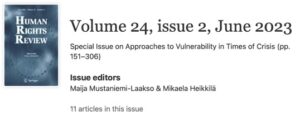
Special issue on vulnerability in times of crisis in Human Rights Review, guest edited by Maija Mustaniemi-Laakso and Mikaela Heikkilä. All articles are open access!

Special issue on vulnerability in times of crisis in Human Rights Review, guest edited by Maija Mustaniemi-Laakso and Mikaela Heikkilä. All articles are open access!
 A new article by the project is out on the process of ‘vulnerabilisation’ of international protection. The article reviews this process and explores some of its consequences. Vulnerabilisation, the article claims, is a necessary and important element of ensuring protection of those most in need. However, the development also comes with possible downsides, such as selectivity, compartmentalisation and potential instrumentalisation of protection, which can turn into exclusion and politicisation. As such, vulnerabilisation walks a tightrope between mainstreaming and overreach.
A new article by the project is out on the process of ‘vulnerabilisation’ of international protection. The article reviews this process and explores some of its consequences. Vulnerabilisation, the article claims, is a necessary and important element of ensuring protection of those most in need. However, the development also comes with possible downsides, such as selectivity, compartmentalisation and potential instrumentalisation of protection, which can turn into exclusion and politicisation. As such, vulnerabilisation walks a tightrope between mainstreaming and overreach.
Viljam Engström, Mikaela Heikkilä and Maija Mustaniemi-Laakso, Vulnerabilisation: Between mainstreaming and human rights overreach, Apr 2022, Netherlands Quarterly of Human Rights.
 In her recent article, professor Elina Pirjatanniemi explores the effects of fundamental and human rights on Finnish criminal law. The requirements for restrictions and extensions that such rights put on criminal law have led to concerns about the inflation of criminal law, particularly with regard to sexual offences. Pirjatanniemi examines the Finnish criminalisation discussions around rape and the purchase of sexual services between 1997 and 2020, concluding that the Finnish criminal law has shown resistance against criminalisation pressures and that the national review margin has been used to the greatest extent possible. However, she argues, rights thinking has contributed to a more analytical and contextual discussion within the criminalisation debates, with more focus being put on the victim’s rights and contributing to the reform of legislation regarding sexual offences.
In her recent article, professor Elina Pirjatanniemi explores the effects of fundamental and human rights on Finnish criminal law. The requirements for restrictions and extensions that such rights put on criminal law have led to concerns about the inflation of criminal law, particularly with regard to sexual offences. Pirjatanniemi examines the Finnish criminalisation discussions around rape and the purchase of sexual services between 1997 and 2020, concluding that the Finnish criminal law has shown resistance against criminalisation pressures and that the national review margin has been used to the greatest extent possible. However, she argues, rights thinking has contributed to a more analytical and contextual discussion within the criminalisation debates, with more focus being put on the victim’s rights and contributing to the reform of legislation regarding sexual offences.
Elina Pirjatanniemi, ‘Om sex, samtycke och mänskliga rättigheter’, JFT 4-5 (2021) 308-332.
19 February 2021, Åbo Akademi University Institute for Human Rights, Turku/Åbo, Finland
The beginning of the 21st century has been a time of nearby-constant crisis. The global financial crisis was followed by the so-called refugee crisis, only to be followed by the Covid-19 pandemic. As a consequence to this, the capacity of many welfare states to protect the rights of individuals has been put to test. Combined with future challenges long foreseen such as an ageing population, altering nature of work, and climate change, there is good reason to engage in a critical debate on the role of the welfare state in protecting individuals, in particular as regards the most vulnerable within societies.
While ‘vulnerability’ has become something of a catchword in protection discourse, its function remains ambiguous and challenged. The workshop identifies uses of the vulnerability concept in the context of crises in welfare states, and takes a critical look at vulnerability reasoning as a structural element in law and politics.
Paper proposals are invited on any theme relating to welfare state approaches to vulnerability and crisis. Papers can engage with the concept of vulnerability both on a more practical or principled level. Questions of special interest for the workshop are (non-exclusively):
Abstracts of no more than 400 words should be submitted before 11 December 2020 at humanrights@abo.fi. The aim is to publish a selection of the papers presented at the workshop in an edited volume or in an international peer-reviewed journal.
The authors of selected papers will be informed by the end of December 2020. In order to enable an in-depth discussion at the workshop, paper presenters are asked to submit draft papers of around 3000-5000 words by 10 February 2021.
For information on the workshop and the project, please see www.abo.fi/relay. For questions, please contact humanrights@abo.fi.
 For discussions on the use of vulnerability reasoning in the African and European human rights systems, see the new article by Mikaela Heikkilä and Maija Mustaniemi-Laakso in African Human Rights Law Journal. Full text is available here.
For discussions on the use of vulnerability reasoning in the African and European human rights systems, see the new article by Mikaela Heikkilä and Maija Mustaniemi-Laakso in African Human Rights Law Journal. Full text is available here.
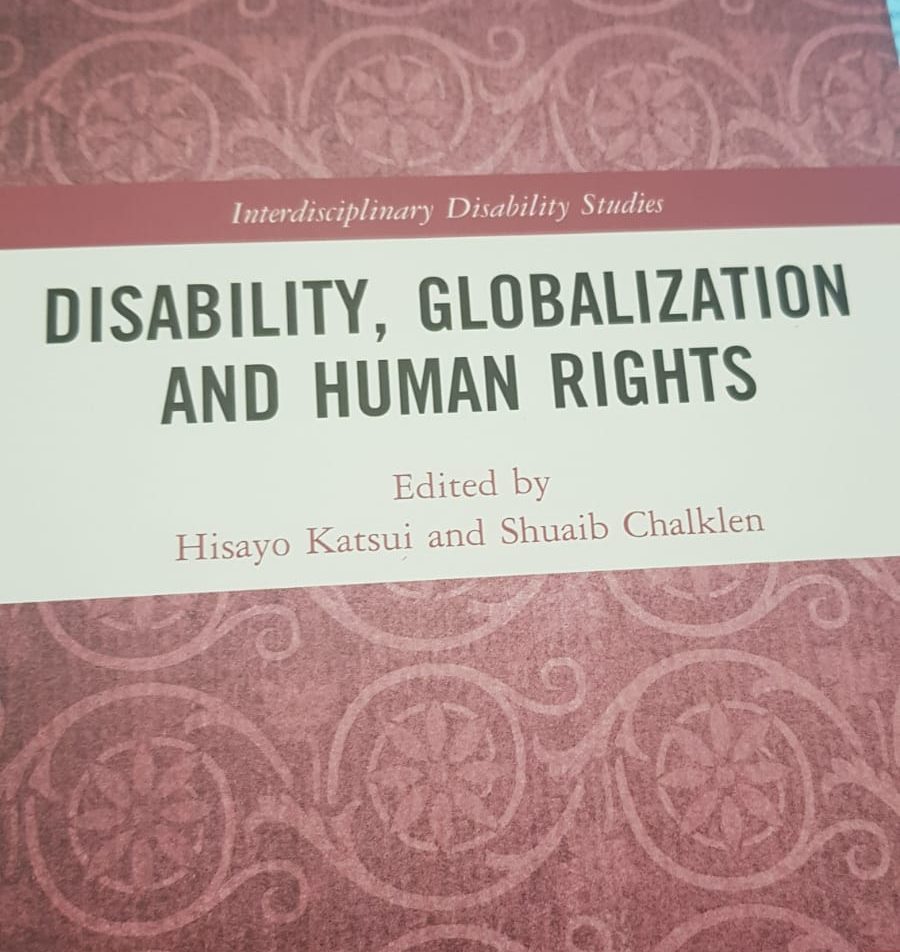 Article by Mikaela Heikkilä, Hisayo Katsui and Maija Mustaniemi-Laakso on a human rights reading of disability and vulnerability just out in the book by Hisayo Katsui and Chalklen Shuaib (eds.) Disability, Globalization and Human Rights (Routledge 2020).
Article by Mikaela Heikkilä, Hisayo Katsui and Maija Mustaniemi-Laakso on a human rights reading of disability and vulnerability just out in the book by Hisayo Katsui and Chalklen Shuaib (eds.) Disability, Globalization and Human Rights (Routledge 2020).
Viljam Engström, ‘Unpacking the Debate on Social Protection Floors’, Goettingen Journal of International Law 9 (2019) 3.
For full text, see here
Social protection policies have been adopted by numerous international actors and are embedded in a wide array of policy and legislative instruments. Conceptually, social protection is ambiguous. This is also true of its different embodiments, such as the concept of vulnerability, and the idea of protection floors. This article looks at social protection floors as manifested in a human rights-based approach and in the context of the International Monetary Fund (IMF). The article situates protection floors in the protection of socio-economic rights, and uses that regime as a reference point for examining the materialization of protection floors in IMF policy-making. Against this background, this article revisits two ongoing debates around social protection: the dichotomy between universalism and targeting, and the capacity to induce change. The article calls for a more nuanced debate on protection floors.
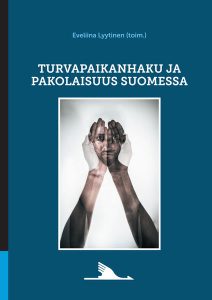 Mikaela Heikkilä and Maija Mustaniemi-Laakso, ‘Turvapaikanhakijoiden haavoittuvuuden huomioiminen Suomen ulkomaalaisoikeudessa ja käytänteissä’ [The recognition of the vulnerability of asylum-seekers in the Finnish asylum law and practices] in Eveliina Lyytinen (ed.), Turvapaikanhaku ja pakolaisuus Suomessa (Siirtolaisuusinstituutti 2019)
Mikaela Heikkilä and Maija Mustaniemi-Laakso, ‘Turvapaikanhakijoiden haavoittuvuuden huomioiminen Suomen ulkomaalaisoikeudessa ja käytänteissä’ [The recognition of the vulnerability of asylum-seekers in the Finnish asylum law and practices] in Eveliina Lyytinen (ed.), Turvapaikanhaku ja pakolaisuus Suomessa (Siirtolaisuusinstituutti 2019)
For full text, see here
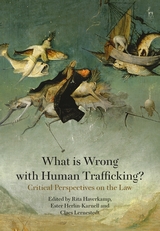 Elina Pirjatanniemi, ‘Victims of Trafficking in the Migration Discourse: A Conceptualisation of Particular Vulnerability’ in Rita Haverkamp, Ester Herlin-Karnell, Claes Lernestedt (eds.) What is Wrong with Human Trafficking? Critical Perspectives on the Law (Hart 2019)
Elina Pirjatanniemi, ‘Victims of Trafficking in the Migration Discourse: A Conceptualisation of Particular Vulnerability’ in Rita Haverkamp, Ester Herlin-Karnell, Claes Lernestedt (eds.) What is Wrong with Human Trafficking? Critical Perspectives on the Law (Hart 2019)
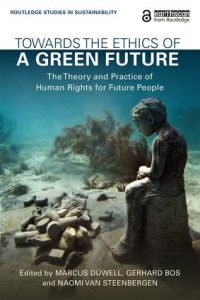 Elina Pirjatanniemi, ‘Pathways for Future Generations in Existing Legal Human Rights Provisions’ in Marcus Düwell, Gerhard Bos, Naomi van Steenbergen (eds.) Pathways for Future Generations in Existing Legal Human Rights Provisions (Routledge 2018)
Elina Pirjatanniemi, ‘Pathways for Future Generations in Existing Legal Human Rights Provisions’ in Marcus Düwell, Gerhard Bos, Naomi van Steenbergen (eds.) Pathways for Future Generations in Existing Legal Human Rights Provisions (Routledge 2018)
For full text, see here
Human rights comprise a powerful message for humankind. This chapter introduces the state of the art regarding the relationship between human rights and duties to protect the environment for the sake of future people. It develops some arguments in favour of the legal rights of future generations. In addition, the question of the operationalisation of the rights is examined. Environmental issues coincide with the general efforts to strengthen people’s participation already imbedded in human rights law. The chapter focuses on these two dimensions of the relationship between human rights and the environment. It concludes with a discussion on the limits and possibilities of law in protecting the rights of future generations. It embodies the basic status of a human being, which means that it is fully plausible to argue that generations to come will also have an intrinsic worth.
Saarikkomäki Elsa, Oljakka Nea, Vanto Johanna, Pirjatanniemi Elina, Lavapuro Juha, Alvesalo- Kuusi Anne, ‘Kansainvälistä suojelua koskevat päätökset Maahanmuuttovirastossa 2015-2017. Pilottitutkimus 18-34-vuotiaita Irakin kansalaisia koskevista myönteisistä ja kielteisistä päätöksistä 2015-2017‘ [Decisions of the Finnish Immigration Service concerning international protection in 2015–2017. Pilot study] (2018).
For full text, see here
 11-15 June 2018 | Åbo Akademi University | Institute for Human Rights | Åbo, Finland
11-15 June 2018 | Åbo Akademi University | Institute for Human Rights | Åbo, FinlandThe position and empowerment of vulnerable individuals, as well as issues related to equality and non-discrimination are central to many branches of the law and development research field. Such research addresses, for example, questions on whether and in which ways different human rights, social services and legal remedies are made, or should be made, accessible to all on an equal basis. Issues related to accountability, rethinking of societal structures and distribution of resources often form a part of such scholarly debates.
The 2018 LDRN PhD Course invites doctoral candidates from different legal (and related) disciplines to discuss the role of law in addressing vulnerability, inequality and discrimination in the north and in the south. The course aims to provide the participants with insights on some of the methodological, ethical and theoretical considerations relevant for this research field. Based on interactive methods of teaching, the curriculum consists of lectures, a methods clinic, group work sessions and paper workshops.
The course will be taught by a group of experts, including
The course is organised jointly by the Åbo Akademi Institute for Human Rights, the Academy of Finland Project “Vulnerability as Particularity – Towards Relativizing the Universality of Human Rights?” and the Law and Development Research Network
Venue: Auditorium Aura, Arken, Tehtaankatu/Fabriksgatan 2, 20500 Turku/Åbo
Application time closed 30 March 2018.